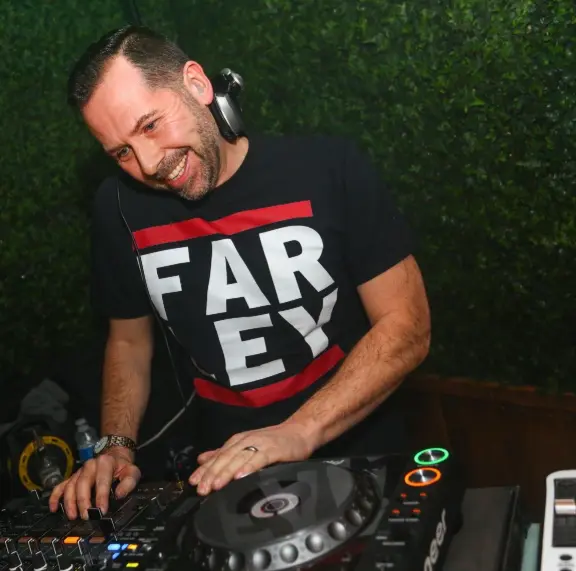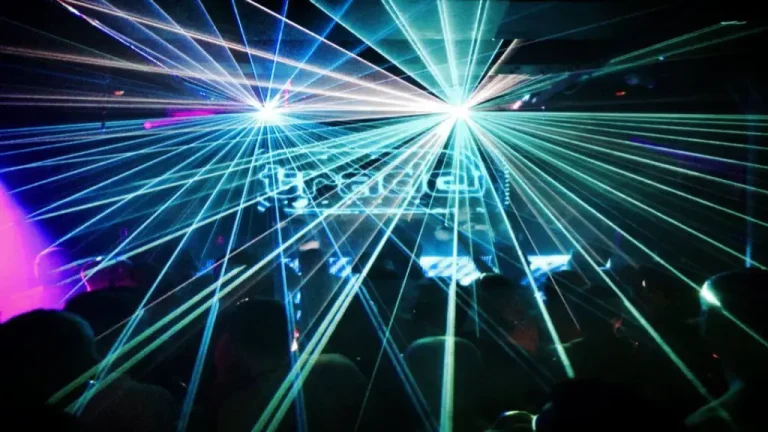The 90s in the UK were a golden, chemical-tinged blur of four-to-the-floor energy, and for a dedicated generation of clubbers, one sound rose above the rest to define the decade: Hard House. It wasn’t just a genre; it was a culture, a commitment, and, for many, a way of life that peaked in the after-hours sanctuaries of the Midlands and London.
This is the story of that scene, seen through the eyes of a dedicated clubber, from the smoke-filled basements of Birmingham to the national stage.
The True UK Origin: Hardbag and the London Pioneer
While the tougher elements of the sound came from Belgian and German techno, the true birthplace of UK Hard House—initially dubbed ‘Hardbag’—is synonymous with one London institution: the legendary Trade at Turnmills.

Trade, known for its groundbreaking Sunday morning parties, needed a sound that could keep the energy surging well into the morning. DJs like the late, great Tony De Vit codified this style, taking US and Italian house, speeding it up, stripping away the fluff, and adding a driving, relentless kick drum with a touch of trance euphoria. The sound was ferocious, high-energy, and completely addictive. It became the template for a decade of clubbing.
Birmingham’s After-Hours Citadel: Tin Tins and Hype
But the heartbeat of the scene wasn’t confined to the capital. In the heart of the Midlands, Birmingham cultivated its own thriving, essential ecosystem, and the epicentre was the infamous Tin Tins Club on Smallbrook Queensway.
For those of us who lived it, Tin Tins was less a venue and more a pilgrimage site. We’re talking specifically about the legendary Hype on a Saturday night. This wasn’t a pre-club; it was an after-party that became the main event. Opening at an improbable 3 AM and roaring until 8 AM on a Sunday morning, Hype was the physical manifestation of Hard House commitment.
This was where you witnessed the magic: a dark, sweaty, packed dancefloor demanding ever-harder beats as the first streaks of dawn crept across the city. The atmosphere was unparalleled—a collective, tribal energy where the only focus was the music.
The Rise of Andy Farley: From Birmingham Local to Trade Royalty
It was in venues like Tin Tins that we saw the ascent of a true Hard House titan: Andy Farley.
Farley was a fixture on the vibrant Birmingham gay scene, honing his craft at Tins Tins by blending vocal house with increasingly hard-edged beats. His seamless mixing and dedication to a tough, forward-driving sound set him apart. His local reputation soon caught the attention of the London gatekeepers.

The pivotal move was his link-up with Trade. Persistently sending tapes that showcased his distinctive, relentless style, Farley won over the Trade management. Playing alongside, and eventually after, the likes of Tony De Vit, he absorbed the club’s uncompromising ethos. His presence at Trade wasn’t just a career move; it was the moment his hard-house mastery was confirmed on a UK-wide scale, cementing his status as one of the genre’s most essential selectors.
The Decade-Long Dominance
The mid-90s through to the early 2000s saw Hard House explode, moving from underground after-hours parties to dominating UK clubbing.
- The Superclub Era: Labels like Tidy Trax turned the sound into a commercial force, selling millions of records and launching the careers of artists like the Tidy Boys and Lisa Lashes.
- The Commitment: Hard House demanded stamina. The sheer speed (often 145 BPM and above) and aggressive energy required a different kind of dedication, making it the perfect soundtrack for the UK clubber’s relentless appetite for the weekend.
- The Culture: The sound was everywhere, influencing fashion, mix CDs, and defining the sound of huge club brands like Sundissential, Frantic, and Storm.
To be a UK clubber in the 90s was to know that feeling: the bassline dropping just before 4 AM, the sweat dripping from the ceiling, and the sound of the ‘Hoover’ synth kicking in—a call to arms that meant the journey had truly begun. Hard House was the adrenaline shot that propelled a generation through the night, and its legacy remains an indelible part of the UK’s dance music history.



